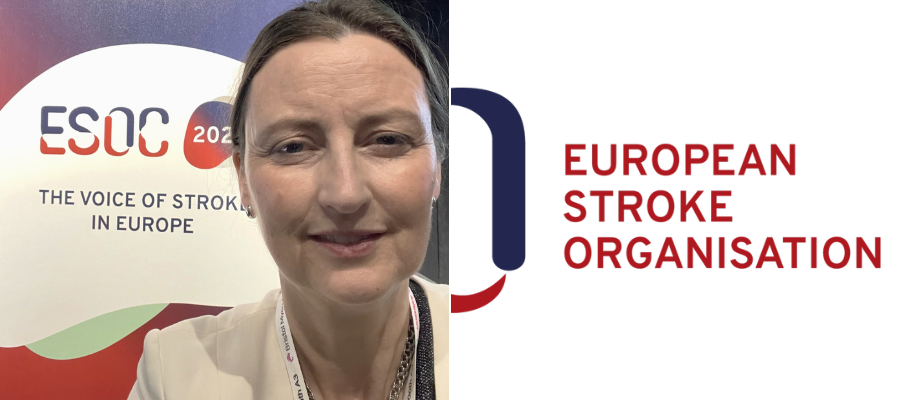Professor of Stroke Care and Rehabilitation leads first European aphasia-specific guidelines

Glasgow Caledonian’s Professor of Stroke Care and Rehabilitation Marian Brady led the development of the world’s first aphasia-specific guidelines launched at the ESOC 2025 - European Stroke Organisation Conference in Helsinki yesterday (May 22).
She headed up the European Stroke Organisation’s guideline-development committee, a group of multi-disciplinary aphasia experts from 10 different countries. Glasgow Caledonian Senior Research Fellow Dr Pauline Campbell, a specialist in systematic reviewing and quality appraisal, was also involved in the working group.
As the first evidence-based European-wide recommendations, the guidelines outline the minimum standards of effective stroke-related aphasia rehabilitation delivery for health professionals.
Professor Brady is a speech and language therapist and stroke rehabilitation expert who specialises in aphasia research. Aphasia, a speech problem caused by damage in the language area of the brain, affects about 50,600 stroke survivors in the UK every year.
The guidelines, also published in the European Stroke Journal, recommend specific minimum intensity, frequency and dosage of therapy for aphasia after a stroke, in addition to recommendations relating to use of technology, group work and tailoring of interventions to the individual.
Professor Brady said: “It was a profound privilege to lead this dedicated and diverse group of international experts alongside Prof Katerina Hilary from City University, in crafting these much-needed aphasia rehabilitation guidelines for Europe. The synergy and shared commitment across disciplines were truly inspiring. I am confident that these evidence-based recommendations will significantly enhance the quality of care and improve the lives of people with aphasia after stroke and their families across the continent.
"Navigating the complexities of evidence synthesis and achieving consensus across a multi-disciplinary international team and diverse rehabilitation interventions presented some challenges, but the potential impact on stroke survivors living with aphasia fuelled our determination to deliver high quality guidelines. Being invited to steer this crucial initiative was a significant honour, and the resulting guidelines represent a critical step forward in harmonising and elevating aphasia rehabilitation standards across Europe from which further evidence can be developed."
Professor Brady, a key researcher in the School of Health and Life Sciences’ Research Centre for Health Stroke and Rehabilitation Research Group (SYNERGY), has recently been appointed to the National Institute for Health and Care Research (NIHR) Advanced Fellowship Awards Panel for Global Health and is a NIHR Editor for Health Technology Assessment and Global Health journals.
The new guidelines can be found here – European Stroke Organisation (ESO) guideline on aphasia rehabilitation.
